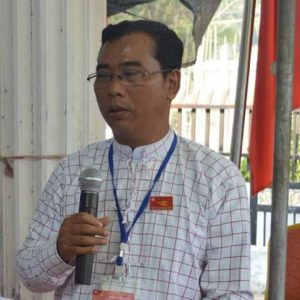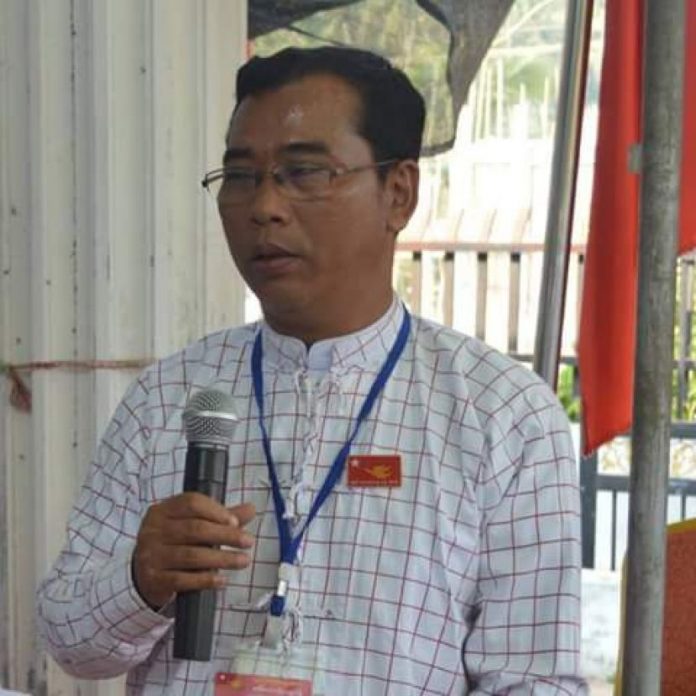An ethnic leader is arguing that negotiations over political power sharing should take precedence over ceasefires in the current peace process.
Following the October 15 feting of the Nationwide Ceasefire Agreement (NCA) during two-year anniversary celebrations, the general secretary of the Mon National Party Nai Layaetama, called political dialogues “vital”.
“The ceasefire is signed in order to hold political dialogues,” he said. “So, political dialogues are more vital than ceasefires. We need to prioritize and carry out this vital factor. I want to urge the government and the Tatmadaw leaders to seek out other possible ways to include respective ethnic armed organizations in the political dialogues.”
 Currently only ethnic armed groups that have signed on to the NCA may request government permission to stage a political dialogue, and even then, some signatories have hit stumbling blocs.
Currently only ethnic armed groups that have signed on to the NCA may request government permission to stage a political dialogue, and even then, some signatories have hit stumbling blocs.
Via the political dialogues, the ethnic armed groups hope to secure greater autonomy for their regions and map out the power structure under a promised future federal democracy.
Nai Layaetama said that other ethnic armed organizations (EAOs) should be permitted to participate in dialogue if they have signed bilateral ceasefires.
Several bilateral agreements were inked with former president Thein Sein’s government. The United Wa State Army (UWSA), the National Democratic Alliance Army (NDAA), the Shan State Progress Party/Shan State Army-North (SSPP/SSA-N), the New Mon State Party (NMSP) and the Karenni National Progressive Party (KNPP) have all signed state-level and Union-level ceasefires, but have not joined the NCA.
“Since the NLD [the National League for Democracy]-led government came to power, the number of EAOs that have signed the NCA has not increased and the UNFC [the United Nationalities Federal Council] has became less powerful and the Northern Alliance, which does not follow the NCA path, has emerged. So the government and the Tatmadaw leaders should review whether they can still reach agreements if they continue to follow the existing NCA-led peace path,” said Nai Layaetama.
During the October 15 commemorative event in Nay Pyi Taw, the Tatmadaw’s Commander-in-Chief Senior General Min Aung Hlaing reiterated that the NCA serves as the bedrock for the peace process. The Tatmadaw chief has insisted that ethnic armed groups must surrender their arms before joining the negotiating table.
During his October 15 speech, Min Aung Hlaing urged all ethnic armed groups to sign the NCA in order to build peace in the country.
“All armed ethnic organizations must sign the NCA. Some organizations said they do not need to sign the NCA because they are not involved in [weapons] firing and attacks. In fact, the NCA is an agreement of ceasefire but actually, its essence is wider and deeper. So, I firmly ask you to sign the NCA,” he said.
Only eight ethnic armed organizations have signed the NCA, and all did so under ex-president Thein Sein.

